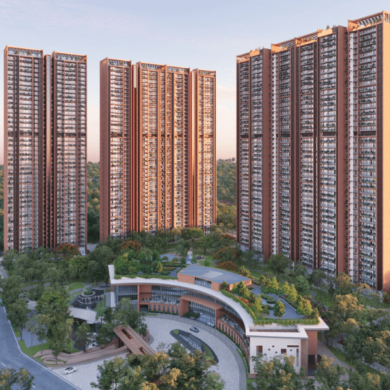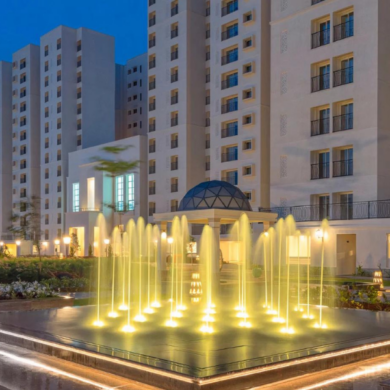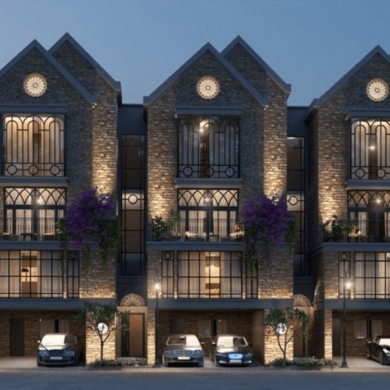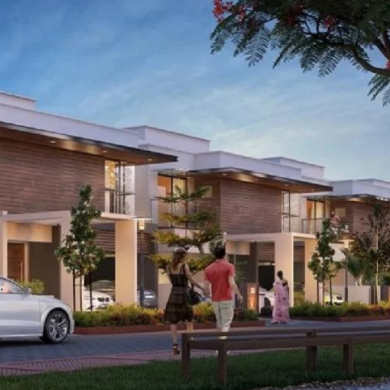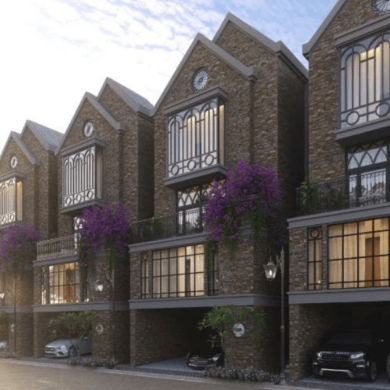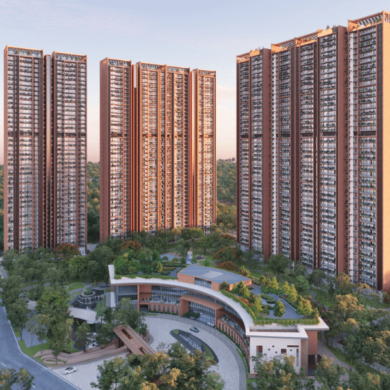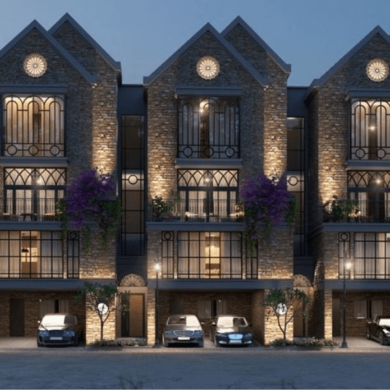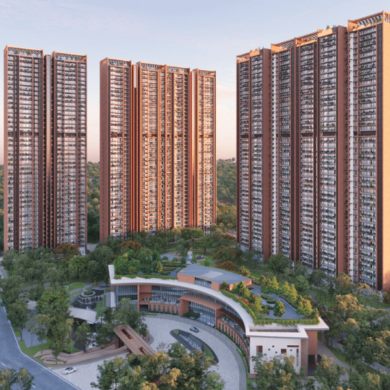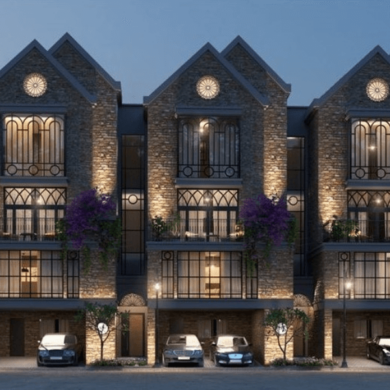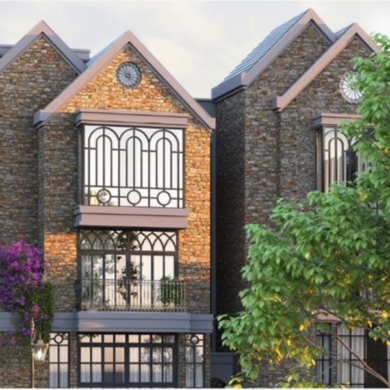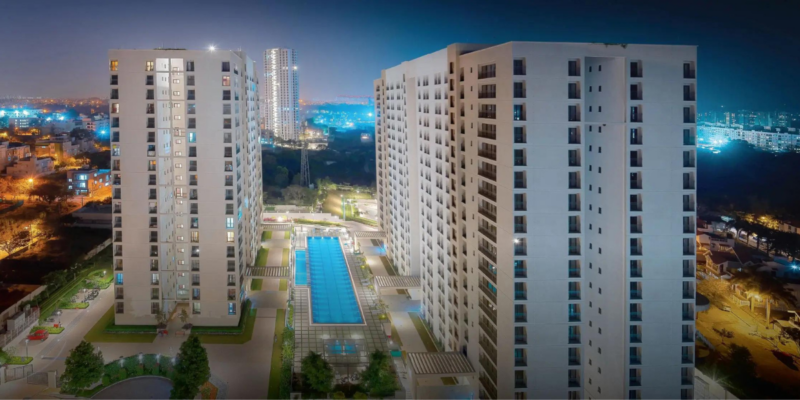
Bengaluru is home to some of the world’s most powerful technology companies, including Google, Amazon, and Microsoft. Techies and entrepreneurs across India flock to the Silicon Valley of India with dreams in their eyes to make it big. With the city’s current population estimate of 11,644,000 people , there is a growing demand for real estate in Bengaluru.
Buyers are drawn to under-construction properties over ready-to-move-in apartments because of the numerous benefits they offer, such as lower prices, greater customisability, and flexible payment plans. With the real estate market rapidly expanding, under-construction properties appear to be a huge hit! In this blog, we cover the various advantages of buying an under-construction flat in Bengaluru.
Table of Contents
6 Advantages of Buying an Under-Construction Flat in Bangalore
1. Cost-Saving Benefits
Buying an under-construction apartment in Bangalore allows you to save money because the price is usually lower than that of a ready-to-move-in flat. This means you can get more value for money and save much more on your purchase. Additionally, there are tax benefits on under-construction properties as well. They are:
Section 24B of the Income Tax Act of 1961: Section 24B provides an under-construction property tax benefit of up to Rs.2 lakh per financial year. This amount can be deducted from a home loan’s interest rate.
Section 80C of the Income Tax Act of 1961: Section 80C provides an under-construction property tax benefit of up to Rs.1.5 lakh per financial year. This amount can be deducted from the principal amount of the home loan.
Section 80EE of the Income Tax Act of 1961 allows taxpayers to claim an additional tax deduction of Rs.50,000 on home loan interest paid after the Section 24B limit has been reached.
2. Customisation Options
Modifying an under-construction flat to suit one’s needs can be an excellent option for those looking to make their home as unique as possible while also getting the best value for their money. Determine the layout and available space first while customising an under-construction flat. This will aid you in determining the kind of furniture and other items that can be installed in the flat.
Customised fixtures and fittings such as windows, doors, kitchen cabinets, wardrobes, and other similar items are also available to the buyer. Usually, a reputed builder accommodates these requests and even goes as far as advising them on the latest trends in the market.
3. Higher Appreciation Potential
The price of a property rises as its construction progresses. Furthermore, during this time, the development of the surrounding infrastructure increases the value of a property as well. As a result, purchasing an under-construction apartment in its earliest stages is a wise decision. For excellent return on investment, one should consider the location, upcoming infrastructure, and employment hubs nearby. Furthermore, when you buy an under-construction property in Bangalore – one of the most preferred cities for techies and entrepreneurs, you can rest assured knowing that it is one of the most lucrative places for real estate investment.
4. Modern Amenities
An apartment under construction ensures new amenities when it is open for occupancy. You, as a first-time occupant of the apartment, can be certain that you will be using the gym equipment or the children’s playground for the first time. This means that you will not have to deal with wear and tear in the near future. However, in ready-to-move-in apartments, these amenities may have been used by several people before you and may have worn out or been subjected to several rounds of maintenance, as well.
5. Better Payment Options
When purchasing a ready-to-move-in property, the buyer must mobilise large sums of money that include stamp duty, registration fees, and other miscellaneous costs. On the other hand, under-construction properties demand only the payment of a booking fee – which is around 10-15% of the total cost. You can then pay the remaining in instalments as per the construction plan. You also have time to mobilise the stamp duty and registration charges. If the property is financed, you pay EMIs to the bank.
6. Risks And Precautions
There could be builders who make numerous promises regarding the infrastructure and amenities they’re providing within society. However, at the time of handover, homebuyers are in for a shock as they realise that none of the promised amenities is provided. As per RERA guidelines, builders are not authorized to change the building approval plan after it has been approved and displayed on their website.
RERA has played a crucial role in minimizing several notorious activities, but homebuyers must consciously choose a trusted builder and a project that is RERA approved.
Final Thoughts
When the construction of an under-construction property is completed, you will be able to enjoy a brand-new home with no maintenance issues. Furthermore, you will have access to the most recent amenities and facilities on the market.
Initially, homebuyers favoured ready-to-move-in properties over under-construction properties primarily to avoid possession delays. However, since the implementation of RERA, homebuyers can freely select an under-construction property as long as it has a valid RERA number and is being developed by a reputable developer.
However, do keep in mind that the under-construction flats come with a 1% GST on affordable housing and a 5% GST on non-affordable housing.
Here is a list of all the upcoming projects by SOBHA in Bangalore that are nearing completion and are fast selling out.
FAQ’s
1. Is it Good to Buy Under-Construction Flats in Bangalore?
Yes. It is good to buy under-construction flats in Bengaluru. They come with a host of benefits such as easy payment options, higher appreciation value, therefore higher return on investment, etc.
2. Is it Worth Buying an Under-Construction Flat?
Yes. An under-construction flat offers numerous benefits. Firstly, it is priced much lower than that of a ready-to-move-in flat and the value of the property is only expected to go up as the construction progresses. You have the option to pay as per the construction plan, thereby giving you ample time to plan your payments. Additionally, you have the ability to customise it as per your preference.
3. Which Floor is Best to Live in Flats?
Every floor has its advantages and disadvantages. While higher floors offer a magnificent view of the city, lower floors are easier to access when the lift is under maintenance.
4. What are the Benefits of Under-Construction Property?
Under-construction properties have several advantages, including low cost, high return on investment, payment flexibility, discounts, and special offers.
5. Can I Sell Under Construction Flat with a Loan?
Yes. However, the sale transaction requires the lender to provide a NOC or in-principle approval for the sale transaction. A portion of the sale proceeds will be paid directly to the lender, with the remainder (if any) going to you, the seller. The lender will release the original title deed of the property that was deposited with the lender at the time of loan disbursement once the total loan consideration is received.
6. Do We Need to Pay Tax for an Under-Construction Property?
Section 24 allows no tax deduction for property that is still under construction. It is only permitted after the construction is completed and the taxpayer takes possession. The maximum interest deduction a taxpayer can claim in each fiscal year is Rs. 2 lakh. Section 24B of the Income Tax Act of 1961: Section 24B provides an under-construction property tax benefit of up to Rs.2 lakh per financial year. This amount can be deducted from a home loan's interest rate. Section 80C of the Income Tax Act of 1961: Section 80C provides an under-construction property tax benefit of up to Rs.1.5 lakh per financial year. This amount can be deducted from the principal amount of the home loan. Section 80EE of the Income Tax Act of 1961 allows taxpayers to claim an additional tax deduction of Rs.50,000 on home loan interest paid after the Section 24B limit has been reached.
7. How Much GST is Levied on an Under-Construction Property?
Buyers of unfinished flats, apartments, and bungalows in India pay 1% GST for affordable housing and 5% GST for non-affordable housing. The GST is applicable to the purchase of real estate land.

